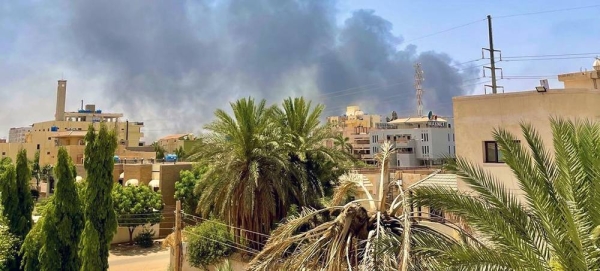
US special envoy Zalmay Khalilzad holds talks with top officials in New Delhi
NEW DELHI: India pledged on Tuesday to work with key partners to help broker a lasting peace in Afghanistan.
New Delhi’s announcement followed a visit to India on Monday by US special envoy for peace in Afghanistan, Zalmay Khalilzad, during which he delivered an update on the latest round of talks with the Taliban, held in the Qatari capital Doha.
Khalilzad met Indian Minister of External Affairs Sushma Swaraj and briefed her about the ongoing process to find ways to end the long-running conflict.
In a tweet after their meeting the Indian Ministry of External Affairs said Swaraj and Khalilzad had discussed the “role of all regional stakeholders in bringing peace and development in Afghanistan. India will work with key partners in the days ahead.”
It was Khalilzad’s second visit to India in the last four months and it took place among growing concerns in New Delhi over the US’s exit policy for Afghanistan.
“After 18 years in Afghanistan, we fully understand the US sentiment for an exit policy,” Indian ambassador to the US, Harsh Vardhan Shringla, told the American Fox News channel recently.
“There is a good chance that the peace process could succeed. However, if it’s done in a hasty manner and too many concessions are conceded to the Taliban, it could lead to a situation similar to the pre-9/11 period, and so it has to be cEarlier this year, New Delhi urged US President Donald Trump’s administration not to withdraw its troops from Afghanistan without putting in place an elected “political structure” to govern the country.
India has been a strong backer of Afghan President Ashraf Ghani’s government in Kabul and supports his argument that peace talks should be led and owned by Afghanistan.
Foreign policy analysts say Khalilzad’s visit signifies that New Delhi’s interests in Afghanistan have to be protected.
“Basically, the US has not involved India in a very significant way in the talks, but now they are gradually introducing India into that conversation,” said Harsh V. Pant of New Delhi-based think tank Observer Research Foundation (ORF).
“Washington recognizes India’s significant stakes in Afghanistan and realizes that its interests have to be protected in some way,” Pant told Arab News.
He said Khalilzad’s visit was also an attempt to “build a regional consensus before putting in place a political structure in Kabul if the talks lead to fruition. Any political arrangement in Kabul will need a regional consensus so that no one in the region has an upper hand.”
However, Pant did not envisage any immediate stepping-up of India’s role in the peace process.
“India’s isolation at the negotiating table is the result of the approach it adopted in 2001, which was to focus only on capacity building and soft-power push. It missed the bus in the initial years by not playing the hard-power game,” he added.
Dhruva Jaishankar of research group the Brookings Institution, based in New Delhi, said not much should be read into Khalilzad’s trip. “It is an attempt to keep India in the loop about the negotiations that are taking place in Doha.
“The reality is that India is a major stakeholder in Afghanistan; it is the fifth-largest aid provider in terms of civilian support,” added Jaishankar..












